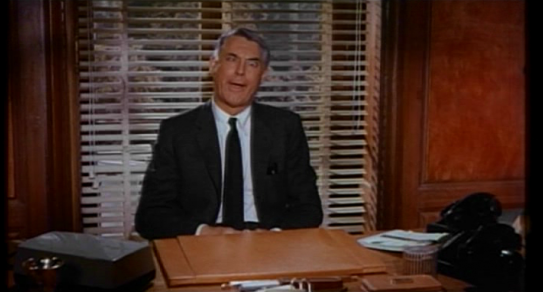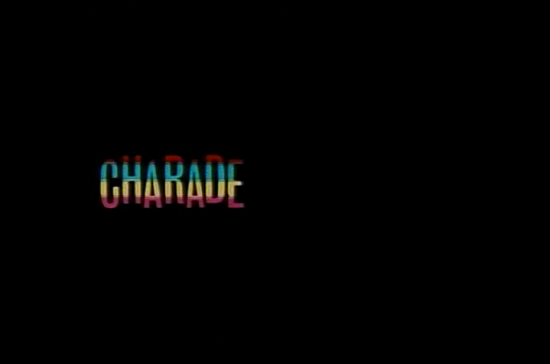The Movie: Charade
The Gist: A woman (Audrey Hepburn) returns from vacation to discover her secretive husband Charles has been murdered, but not before he sold off all their belongings in public auction. Unsure of what’s become of the money from that auction (to the tune of $250,000, which in 1963 was a huge chunk of change), she tries to ward off the increasingly threatening inquiries from three mysterious men, who claim the cash belongs to them. Helping her out is a similarly strange and mysterious man, Peter Joshua (Cary Grant), who claims not to care about the money but is very interested in helping her solve the case nonetheless. Intrigue and witty retorts are had. Sexual tension gets tight enough to pluck a few notes off of. Walter Matthau has a mustache.
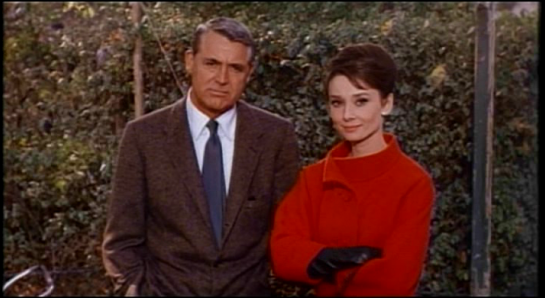
The Moment: Getting to her wit’s end with all the double and triple crosses happening around her, Regina makes Peter Joshua (now revealed to really be called Alexander Dyle), promise to take her to dinner to help get her mind off things. He complies, though is taken off balance when she tries to put the moves on him in her hotel room instead. It’s not that he doesn’t want to, but that it wouldn’t be right just yet, he looks for a way out. Claiming the he needs to take a shower, he climbs into the bath fully clothed, treating her to a comic routine involving a pair of glasses and the wettest suit outside of Lucca Brasi’s tailor that reaches nearly Chaplin-esque levels of getting a lot of laughs out of a simple setup.
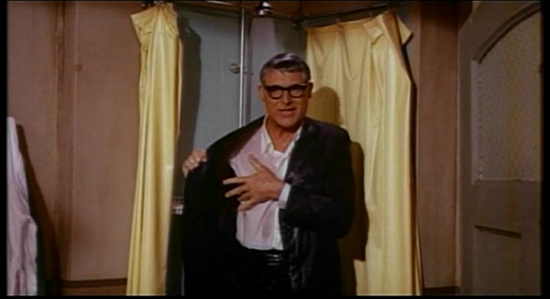
Why It Matters: This moment doesn’t reveal unexplored depths to our protaganists’ inner mechanics, but it does have something I’ve noticed most mainstream comedies have been utterly lacking in lately: charm. There’s a certain level of just pure joy to be had at watching an old pro like Grant act like a goof for a few uninterrupted minutes, especially one that gives him a chance to show that his physical comedy chops were still as sharp as they ever were. The placement within the film doubles the enjoyment, as it is not only a fine bit of comedy, but services the story and the audience’s attachment to the characters as well. Charade is not only notable as one of Grant’s final roles and as a superb Hitchcock-lite romp, but that it’s one of the only thrillers (in the old sense of the word) from that era that is from the point of view of a woman.
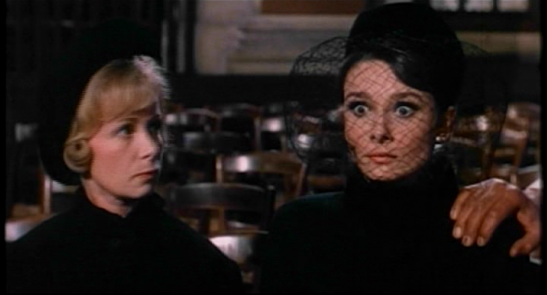
The film is hinged on Hepburn playing a regular lady who gets caught up in an international scheme of betrayal and backstabbing, and never quite knowing if she can handle all this intrigue. She’d much rather skip town with this handsome elder gentleman she’s met, anything to get away from all this nonsense. But alas, nothing and no one is as it seems, so her best bet is to figure everything out so she can send it back on its merry way. Her coping mechanism is wit and sass, which we get plenty of as the proceedings get underway. Hepburn never overdoes it, though, and neither does the script: we are regularly reminded that she is becoming more and more terrified for her life as plots continue to twist and turns continue to be taken at sharp 90-degree angles. When asked why she’s hiding in a phone booth after being intimidated by one of the three bad guys, she responds with barely held together resolve: “I’m having a nervous breakdown.”
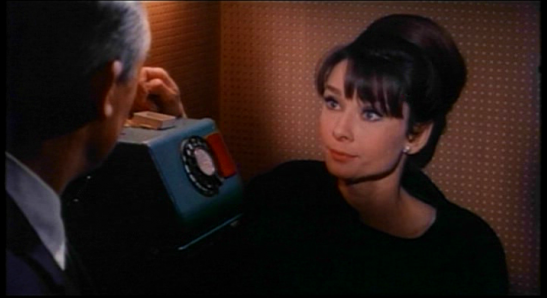
Getting so tightly wound, she needs a release, and first tries to come on to Peter/Alexander. His protests to the advances aren’t out of disinterest, but because he knows, even if she doesn’t, that she’d regret such an act, but still wants to cheer her up. And so we get Grant doing what he always did best, acting the clown while still appearing to be the classiest fella who ever intentionally ruined a very nice suit. Regina laughs, the audience laughs with her, and our association with her point of view is strengthened–there is a moment a few scenes before where she learns that Peter Joshua isn’t who he says he is, and though she continues to trust him, a viewer might not be so inclined to follow her. Once the main character’s actions start getting questioned, it won’t be long before a viewer checks out of the picture completely. Getting her and us to laugh together closes that gap in reasoning, showing again what a tightrope act comedy must be, especially when trying to tapdance across it with a plot as twity as this one. Especially when we know the next twist has just got to be waiting around the corner…
Tangenticals: Grant was uneasy about romancing such a younger costar (he was 59, she was 34–in a modern world, where Jack Nicholson can woo anyone he damn well pleases, this seems positively chaste!), and so the script was changed so that Hepburn would be the pursuer, and for most of the film Grant would dodge her advances. It turned out to be a brilliant move, as much of the film is fueled by the two trying to navigate the threats coming their way and keep a level head at the same time, bringing about the sort of tension that would normally make a eunuch sweat. And it might be the old soul in me, but there is something profoundly more sexy about a couple tapdancing around humping like bunnies for the whole running time, rather than them just humping like bunnies right off the bat. Or maybe it’s because Grant could do more with a smirk and Hepburn could do more with a look than most actors could do with full-on penetration. Ah, a different time…
